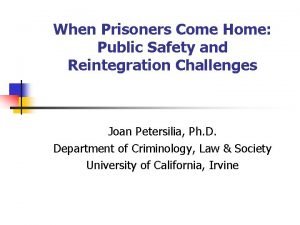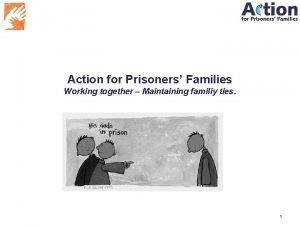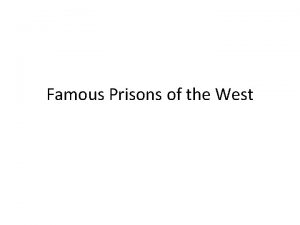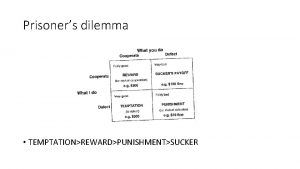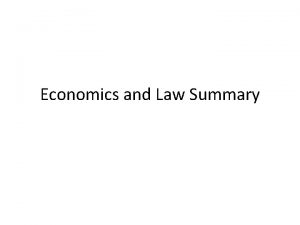Law Economics and the Prisoners Dilemma Tim Mason











- Slides: 11

Law, Economics and the Prisoners’ Dilemma Tim Mason

Red v Blue Game Group A Group B Score A Score B Red +3 +3 Red Blue -6 +6 Blue Red +6 -6 Blue +3 +3

Game Theory Analyzing the decisionmaking process when there are more than one decisionmakers where each agent’s payoff possibly depends on the actions taken by the other agents.

The Prisoners’ Dilemma • Two members of a criminal gang are arrested and imprisoned. Each prisoner is in solitary confinement with no means of communicating with the other. • The prosecutors lack sufficient evidence to convict the pair on the principal charge. • Simultaneously, the prosecutors offer each prisoner a bargain. • Each prisoner is given the opportunity either to: betray the other by testifying that the other committed the crime, or to cooperate with the other by remaining silent.

What are we seeing? Why might 2 completely ‘rational’ individuals fail to cooperate even when it is in their best interests to do so?

Nash Equilibrium Nash equilibrium: a stable state of a system involving the interaction of different participants, in which no participant can gain by a unilateral change of strategy if the strategies of the others remain unchanged.

The Prisoners’ Dilemma as a model for real world problems What kinds of real world situations might the model be used to describe? Situations in which two entities could gain important benefits from cooperating or suffer from the failure to do so, but find it merely difficult or expensive, not necessarily impossible, to coordinate their activities to achieve cooperation. Arms buildup CO 2 emissions and global warming Airport baggage carousels Drug use in sport Tragedy of the Commons (overfishing, overfarming)

What responses are there to solve the dilemma? Introduce an external force to provide sanctions Introduce Negotiation and cooperation, or reduce barriers to communication and negotiation. Legal Responses: Contract Law (private parties) International treaties (States) Property Rights

How does the law respond to problems such as this? CONTRACT LAW Expectation damages – forward looking. Where would you have been if the agreement had been carried out? TORT LAW (private wrongdoing) Backwards looking. Restorative Justice: putting you back in the position you were in before the wrong was committed. CRIMINAL LAW Retribution (punishment), deterrence, rehabilitation PROPERTY LAW Assigning property rights to private parties. Allowing negotiation from that point.

Difference between Red v Blue game and Prisoner’s Dilemma?

Arm Exercise Negotiation
 Prisoners dilemma
Prisoners dilemma Prisoners dilemma
Prisoners dilemma Prisoner's dilemma
Prisoner's dilemma Shirley ardell mason walter mason
Shirley ardell mason walter mason Newton's first law and second law and third law
Newton's first law and second law and third law Newton's first law of motion
Newton's first law of motion Prisoners dillemma
Prisoners dillemma When prisoners come home
When prisoners come home After they arrived the prisoners are supposed to shower
After they arrived the prisoners are supposed to shower Action for prisoners families
Action for prisoners families Adx florence cell
Adx florence cell Maastricht university economics and business economics
Maastricht university economics and business economics







